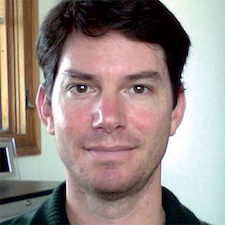Seth Cohen and David Ginger receive 2017 TREE Awards

Seth M. Cohen, chemistry, University of California, San Diego, and David S. Ginger, chemistry, University of Washington, are the 2017 Cottrell Scholar TREE Award recipients.
“TREE awards recognize the outstanding research and educational accomplishments of the community of Cottrell Scholars,” said RCSA Senior Program Director Silvia Ronco. She added, “The awards serve to encourage the improvement of science education at American universities and colleges.”
 Seth M. Cohen |
 David S. Ginger |
Cohen was named a Cottrell Scholar in 2004; Ginger received the honor in 2006. The Cottrell Scholar (CS) program, supported by Research Corporation for Science Advancement, champions the very best early career teacher-scholars in chemistry, physics and astronomy by providing significant discretionary awards for research. In addition, Scholars are eligible for additional competitive career awards, including the TREE Award.
Cohen’s research contributions have transformed the vast and competitive field of metal-organic frameworks (MOFs), while his efforts in the area of metalloprotein inhibitors have provided the medicinal-chemistry community with a new paradigm for the discovery of small-molecule therapeutics. In addition, on both a local and national level, Cohen is recognized as a respected leader in both education and service. At UCSD he has taught a wide range o fcourses including freshman chemistry, upper-divisionin organic chemistry and graduate-level bioinorganic chemistry. He has also worked closely with other faculty members to develop advanced instructional material. Cohen is especially noted for his development of the Science Policy Internship Program stemming from his AAAS-sponsored sabbatical at the White House Office of Science and Technology Policy (OSTP) in Washington, D.C. Through this program, Cohen has provided policy-career opportunities for interested students.
Ginger is known for his pioneering development of powerful tools for new scanning probe microscopy, allowing scientists to visualize the dynamic behavior of electrons in new materials with unprecedented precision. Ginger has also pioneered the application of scanning probe microscopy tools to challenging problems in chemistry, physics, and materials science. His primary research focuses on what is arguably the most important challenge facing civilization today: how to supply our society with low-cost, environmentally benign sources of energy, such as solar power. He has made major contributions to understanding organic photovoltaic devices and to developing the optoelectronic properties of colloidal nanocrystals, and he is widely recognized as an international leader in the development of frontier scanning probe microscopy techniques. In addition, Ginger is noted for his work to improve the educational experience for his undergraduate students, receiving the UW Chemistry’s departmental teaching award in 2007. His teaching emphasizes computational problem solving of context-rich, inquiry-based problems.
The TREE Award consists of an unrestricted $20,000 award sent to the awardee institution on behalf of the recipient’s educational and scholarly work. The recipient is encouraged to use these funds to foster advancements in his or her research and educational accomplishments. An additional $5,000 award is provided to the recipient to support lectures and travel to other institutions to help broadly communicate innovative research and educational accomplishments.






